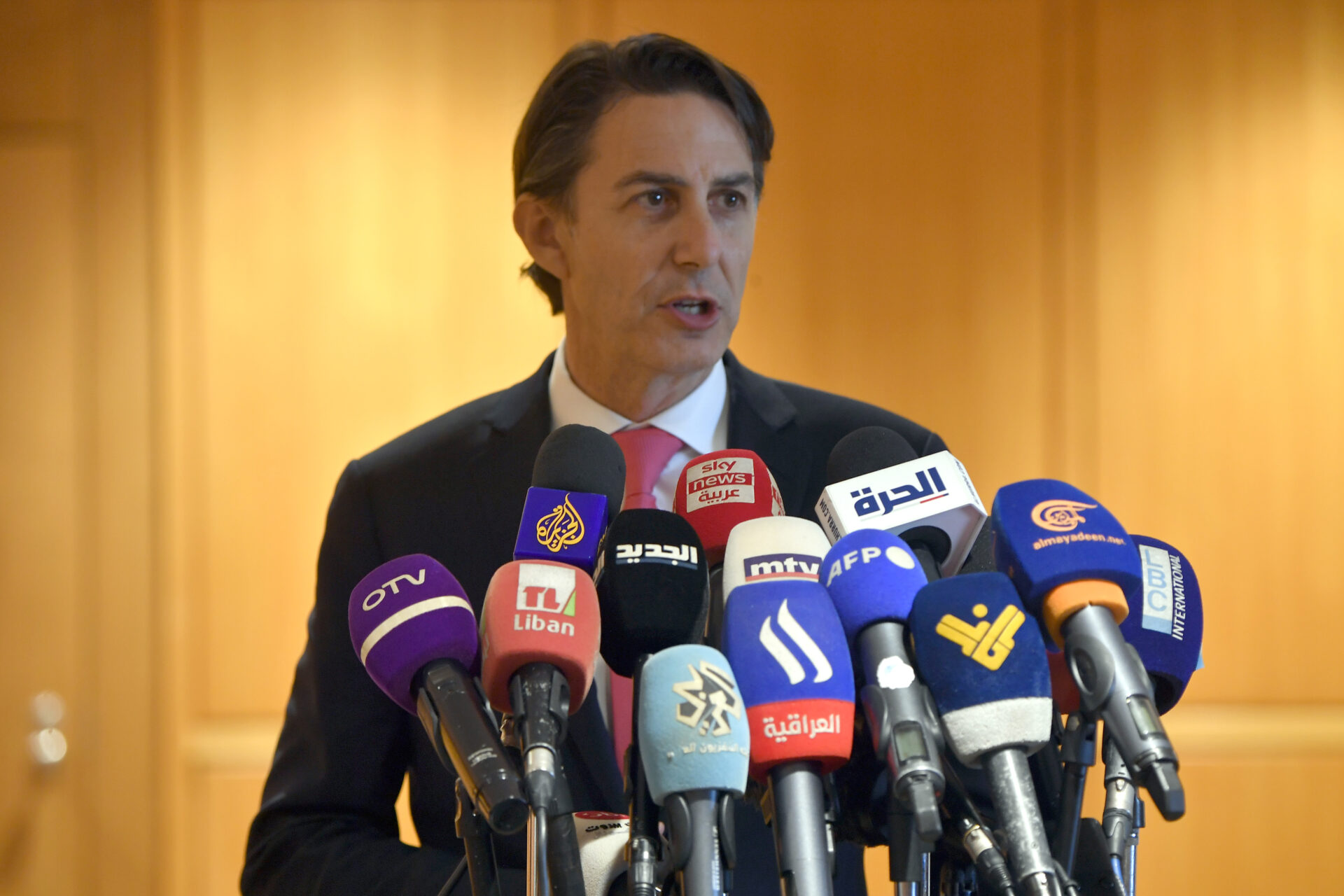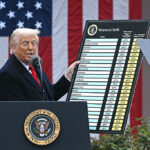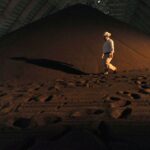Lebanon gas compromise draws praise from Israel and Hezbollah
A proposal from White House energy envoy Amos Hochstein appears to have closed gaps between Lebanon and Israel over disputed maritime border

Houssam Shbaro/Anadolu Agency via Getty Images
White House energy envoy Amos Hochstein speaks to reporters in Beirut
Israeli Prime Minister Yair Lapid and the leader of Lebanon’s Iran-backed Hezbollah organization offered praise for the terms of a U.S.-brokered deal to resolve a 10-year dispute over maritime borders and offshore gas-drilling rights.
The proposed agreement over the Karish field in the Mediterranean Sea, the result of months of shuttle diplomacy by White House mediator and energy envoy Amos Hochstein, was presented to Lebanese President Michel Aoun on Saturday.
Lapid, speaking at a cabinet meeting in Jerusalem on Sunday, said that the agreement was undergoing legal review and would soon be submitted for government approval. “As we have demanded from the start, the proposal safeguards Israel’s full security-diplomatic interests, as well as our economic interests,” Lapid said in a statement.
Although the text of the proposal has not been made public, the Israeli prime minister indicated he was willing to accept compromise in his country’s maritime borders and sharing of revenues between the two enemy countries.
“We do not oppose the development of an additional Lebanese gas field, from which we will of course receive the share we deserve,” Lapid said. “Such a field will weaken Lebanon’s dependence on Iran, restrain Hezbollah and promote regional stability.”
Hezbollah chief Hassan Nasrallah, who has threatened repeatedly to attack Israel’s shipborne platform if it begins extraction of the gas without a negotiated agreement, welcomed the latest proposal as “a very important step” that may “open up wide horizons for the Lebanese people.” Hezbollah, which controls nearly half the seats in Lebanon’s 128-member parliament, is designated a terrorist organization by Israel and the U.S.
In a televised address, Nasrallah said Lebanon “can reach good results” when all elements in the government stand together. “We can extract our resources when we benefit from our strength and unity,” he said.
Nabih Berri, the speaker of Lebanon’s parliament who is also allied with Hezbollah, said that the U.S. offer is “positive” and “meets the Lebanese demands.”
Israel’s opposition leader and former prime minister, Benjamin Netanyahu, said he would not be bound by the agreement if he returns to power after the country’s Nov. 1 elections. “Lapid has no mandate to hand over to an enemy state sovereign territories and sovereign assets that belong to all of us,” he said in a tweet.
The resolution of the maritime border dispute does not bring the countries closer to an agreement over another crucial point of contention: the land border between Israel and Lebanon known as the “Blue Line,” Jewish Insider noted in an analysis of the Karish negotiations last week. Nor would it resolve tensions between Israel and Hezbollah, the Iranian proxy that plays a decisive role in Lebanese domestic and international affairs.
“This is exactly the problem. It doesn’t relate to the broader Israeli-Lebanese dynamic, in the sense that both sides understand that this is not a normalization agreement or peace agreement. It is not going to create a new relationship between Israel and Lebanon or anything of the sort,” Sarit Zehavi, an Israeli security analyst and the president of Alma, a research center focused on Israel’s northern border, told JI. “It will just enable us to get the gas out of the sea for both sides, which is very important for both sides.”










